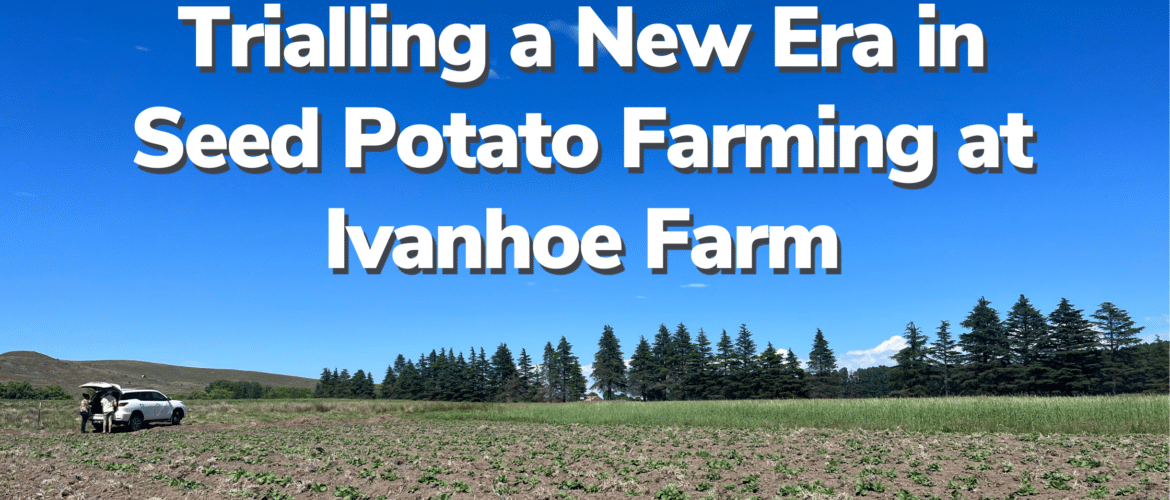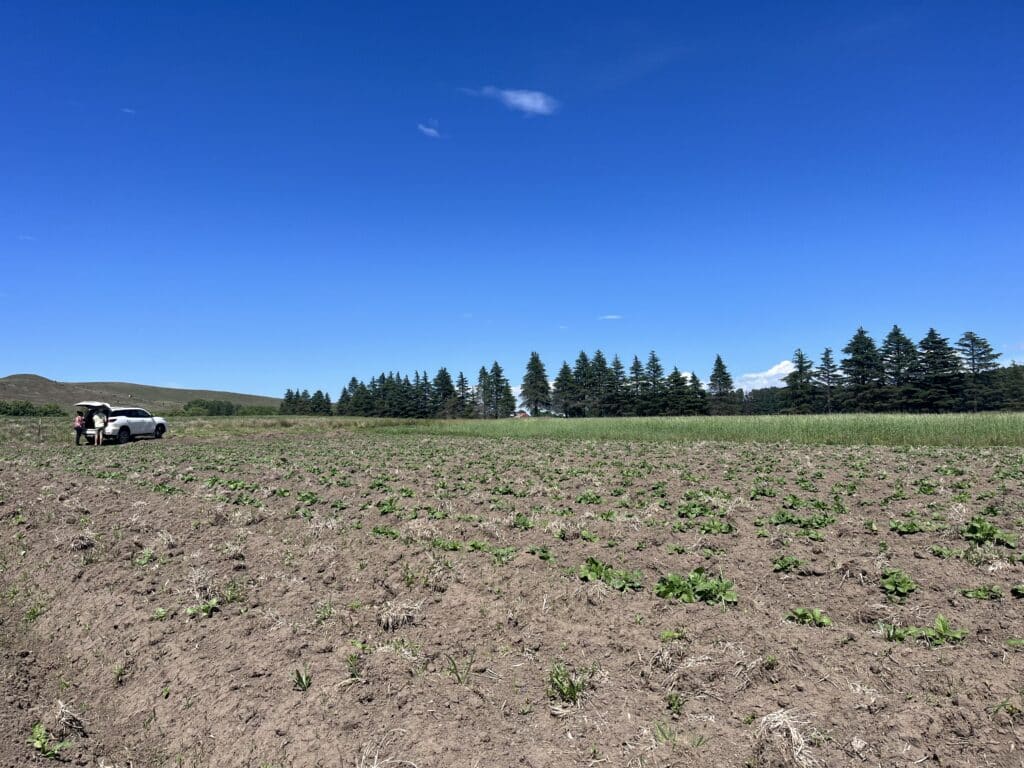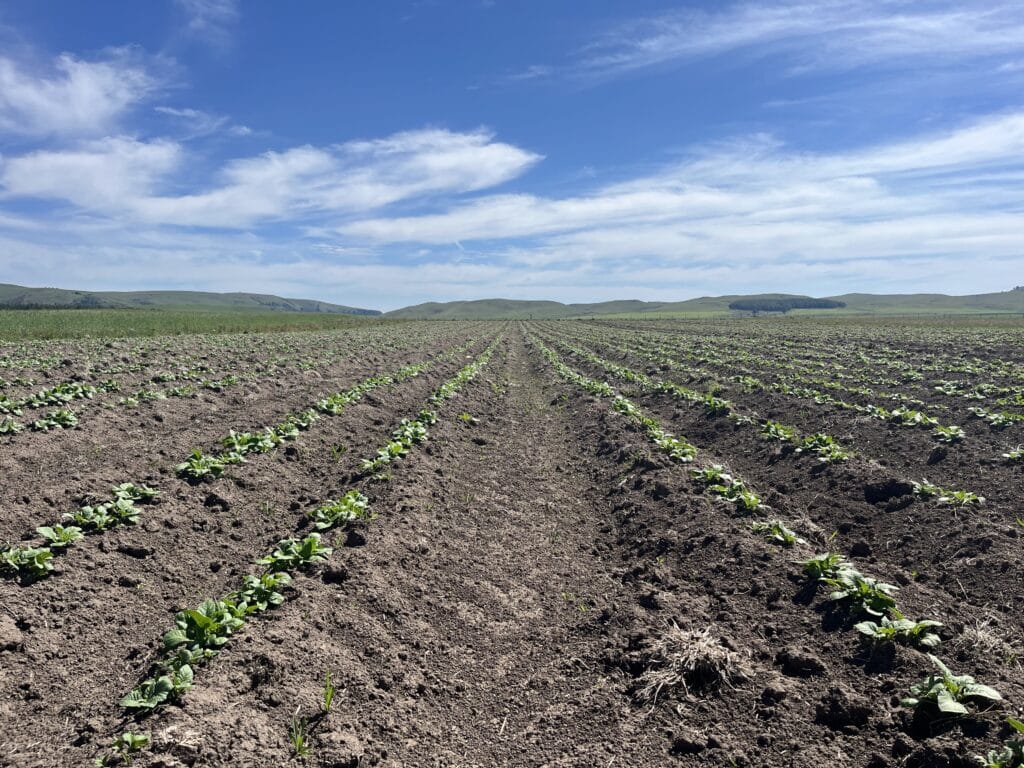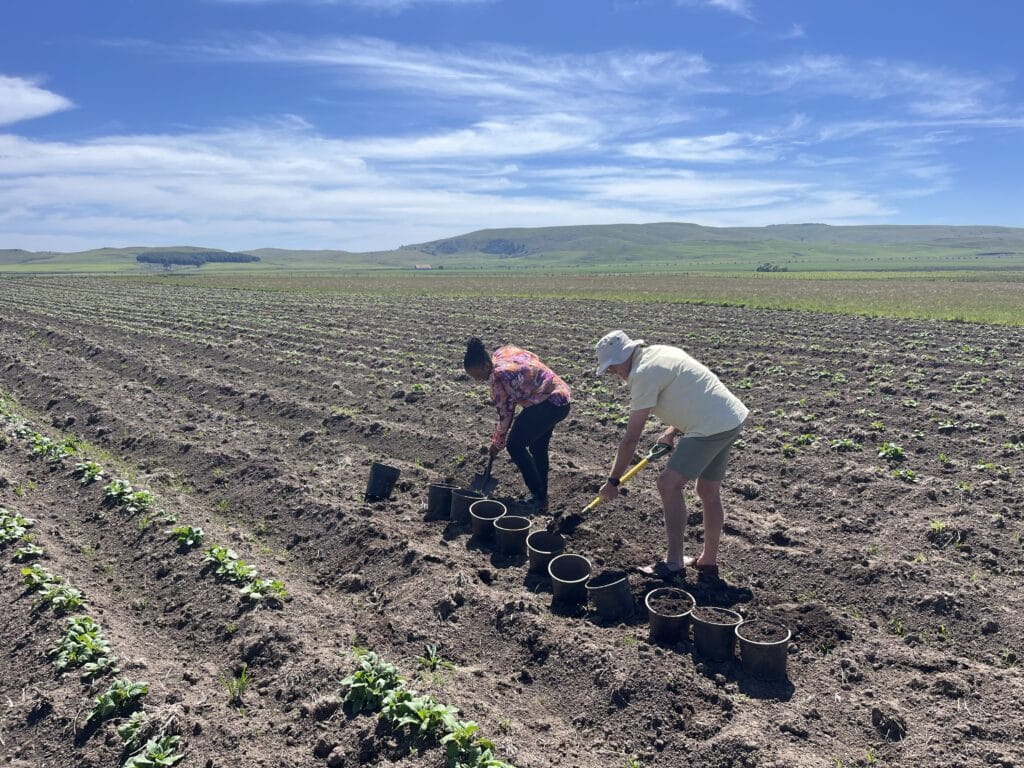
Trialling a New Era in Seed Potato Farming at Ivanhoe Farm
Potato farming has long been known for its demands on soil disruption and heavy reliance on chemicals. But could there be a way to produce top-quality seed potato crops economically while minimising synthetic inputs and embracing regenerative practices? RegenZ is on a quest to find out.
At a farm owned by the Ivanhoe Farming Company in the KZN Midlands, we are spearheading a “Crane-Friendly (CF) Trial,” paying homage to South Africa’s iconic crane birds. Ivanhoe Farming Company, known for its seed potato cultivation and a key custodian of cranes, collaborates closely with the KZN Crane Foundation to support a crane population on its land.
This groundbreaking trial, using Zylem and RealIPM agricultural inputs, aims to revolutionise potato farming practices by championing regenerative agriculture and minimising reliance on synthetic inputs. As this trial progresses, its potential to transform farming methodologies while preserving the delicate ecological balance of the region becomes increasingly evident.

Objectives driving the Crane-Friendly Trial
Initiated in September 2021, this eight-year-long trial aims to pioneer economically viable, high-quality seed potato production through regenerative agricultural practices. Its primary goal is to explore methods that reduce dependency on synthetic fertilisers and chemicals.
According to Nick Platt from RegenZ, “Cranes represent the face of the agricultural ecosystem at Ivanhoe, and more broadly, any growing environment or ecosystem. The products in the CF programme are predominantly natural/biological, designed to have minimal to positive impacts on soil and farming ecosystems.”
Approaching its midpoint with the recent planting of the third crop, the trial has already displayed promising signs. Surprisingly, control rows without in-furrow fertilisers yielded unexpectedly well, suggesting that commercial potato crops might thrive with significantly reduced fertiliser applications.

Trial methodology and product use
The trial adopts a holistic approach, selecting products that harmonise with the farm’s ecosystem and benefit the crane population.
An 8-hectare block is divided into yearly 1-hectare segments, comparing Ivanhoe’s ‘Farm Standard’ spray program with the ‘Crane-Friendly’ (CF) regimen. While both receive in-furrow fertilisers, the Crane-Friendly block incorporates a range of Zylem’s nutritional products and RealIPM’s biopesticides to minimise chemical reliance and enhance soil health. Chemical pesticide sprays have been significantly reduced for the trial segments, primarily addressing late blight.
Within the CF block are 2-4 control rows receiving no in-furrow fertilisers but the same spray program as the rest of the CF block. This allows for observations and inferences regarding inorganic fertiliser usage.
The trial also involves experimenting with diverse cover crop mixes and strategies to bolster overall soil health and combat soil pathogens affecting potato crops. Post-harvest, the block will be planted with a cover crop grazed periodically by Ivanhoe’s beef herd in line with existing land management and crop rotation practices.
Zylem’s nutrition product range includes:
- NanoCal
- SeaBrix
- Triple Ten
Real IPM offers seed treatments and biopesticides such as:
- Real Trichoderma
- Real Bacillus
- Bioneem
- Neudosan
Measuring success
Soil sampling and analysis remain the primary means of trial assessment. Platt explains, “We’re still learning in this phase. In the latter half, we hope to apply these learnings to manage the trial more effectively.”
Success will be evaluated based on:
- Yield and quality: The programme must produce a high-quality seed crop at required volumes for commercial seed potato operations.
- Cost-effectiveness: For wider adoption, the methodology should yield comparable or improved yields at a viable cost compared to existing programmes.

Ntokozo Mkhabela (Junior Technical Manager) and Justin Platt taking soil samples from the trial block
Addressing challenges: disease pressure
The 2023 harvest posed challenges with disease pressure from late blight and Rhizoctonia, emphasising the complexities of sustainable farming. Platt notes, “Disease pressure will always be a challenge. For now, we’re adjusting our spray programme inputs to tackle these issues, refining our approach to enhance outcomes.”
Mixed results and ongoing refinement
Platt acknowledges that Crane-Friendly yields have been lower than the Farm Standard at both harvests, indicating a gap that needs bridging for success. However, control rows without in-furrow fertilisers surprisingly yielded considerably well, offering optimistic signs for program development.
Justin Platt, RegenZ Managing Director, emphasises, “A lower yield might be acceptable if the return on investment justifies it. Using fewer pesticide applications carries direct and indirect benefits, both for the ecosystem and those handling the pesticides.”
Environmental impact and observations
Beyond productivity metrics, the trial observes the environmental impact on different trial groups. Post-harvest observations show a notably improved earthworm population in the Crane-Friendly block, signalling positive effects on soil health compared to the Farm Standard. Platt highlights, “This serves as a powerful indicator of soil health.”
Redefining farming practices
The Crane-Friendly trial unveils a potential path towards sustainable farming—respecting nature while pioneering innovative farming methods.
We eagerly anticipate sharing more insights and results as the trial progresses.

About the Author: Justin Platt
Justin is the Founder & CEO of Zylem and RegenZ. Justin has a BSc in Plant Pathology and Botany from UKZN. He has been involved in the agricultural services industry since graduating in 1979. Justin has a passion for regenerative agriculture.